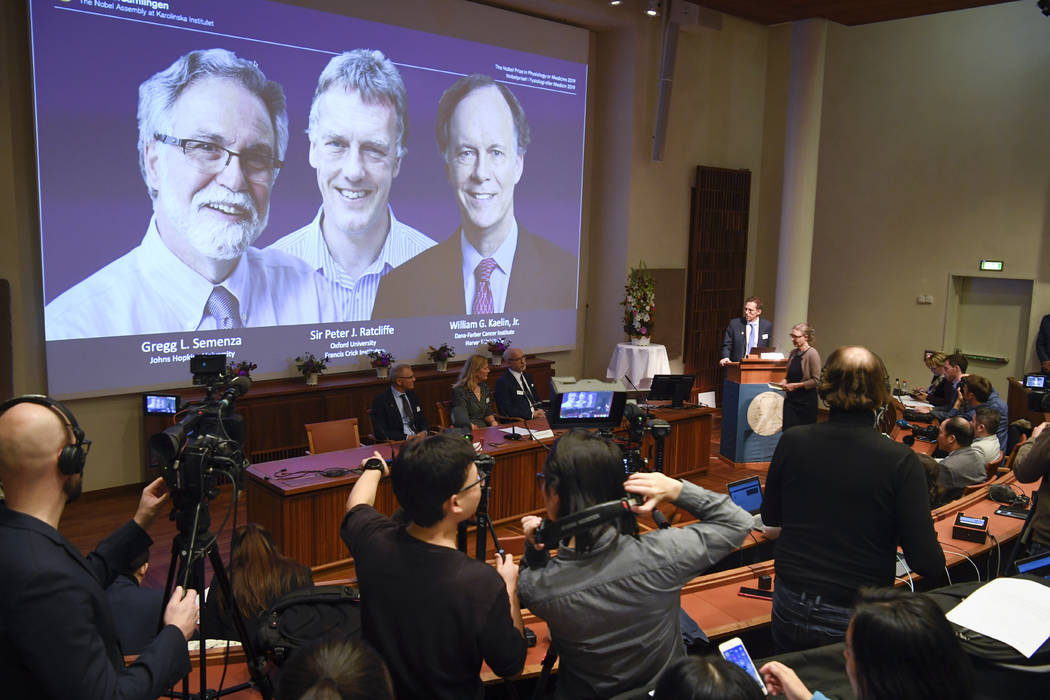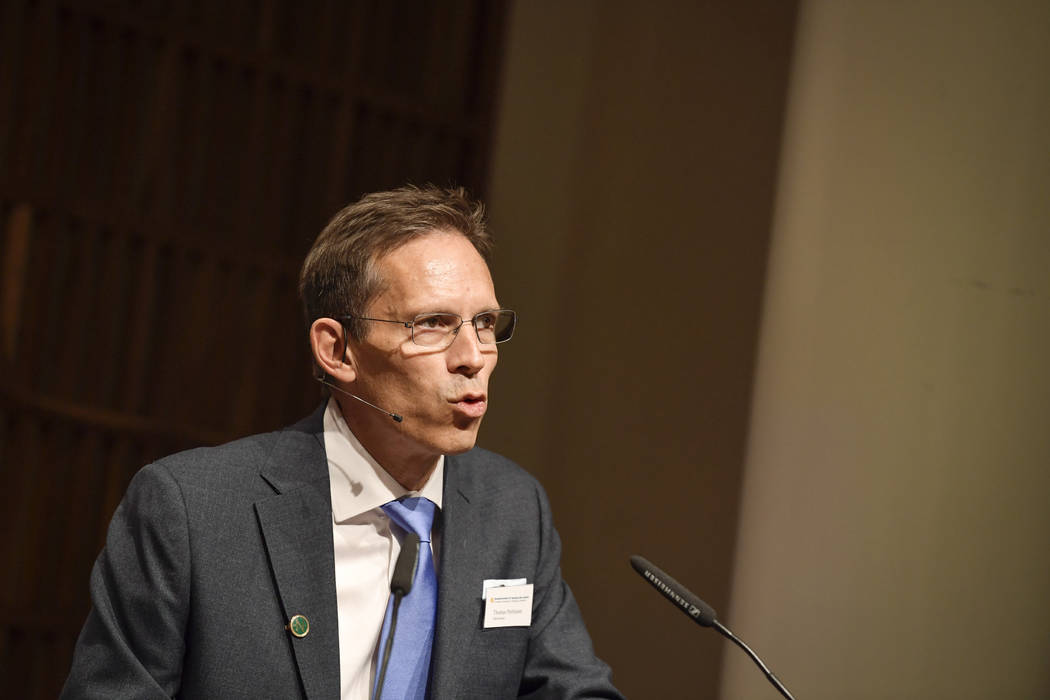3 share Nobel Medicine prize for learning how cells use oxygen
STOCKHOLM — The 2019 Nobel Prize for Physiology or Medicine was awarded Monday to two Americans and a British scientist for their discoveries in how the body’s cells sense and react to oxygen levels.
Their work has paved the way for new strategies to fight anemia, cancer and other diseases, the Nobel Committee of the Karolinska Institute said in awarding the prize.
The winners are Dr. William G. Kaelin Jr. of Harvard University, Dr. Gregg L. Semenza of Johns Hopkins University and Peter J. Ratcliffe at the Francis Crick Institute in Britain.
They will share equally the $918,000 cash award. It is the 110th prize in the category that has been awarded since 1901.
In announcing the prize, the Nobel Committee said the work by the three laureates has “greatly expanded our knowledge of how physiological response makes life possible.” It said Semenza, Ratcliffe and Kaelin found “the molecular switch for how to adapt” when oxygen levels in the body vary, noting that the most fundamental job for cells is to convert oxygen to food and that cells and tissues constantly experience changes in oxygen availability.
Thomas Perlmann, the secretary of the Nobel Committee at the Karolinska Institute, said he was able to reach all three laureates by phone Monday. But he only got Kaelin via his sister, who gave him two phone numbers, and the first one was a wrong number.
“He was really happy,” Perlmann told a news conference.
Kicks off Nobel week
The announcement kicked off Nobel week. The Nobel Physics prize is handed out Tuesday and the following day is the chemistry prize.
This year’s double-header Literature Prizes — one each for 2018 and 2019 — will be awarded Thursday and the Peace Prize will be announced on Friday.
The economics prize will be awarded on Oct. 14.
The 2018 literature prize was suspended after a scandal rocked the Swedish Academy. The body plans to award it this year, along with announcing the 2019 laureate.
Prize founder Alfred Nobel — a Swedish industrialist and the inventor of dynamite — decided the physics, chemistry, medicine and literature prizes should be awarded in Stockholm, and the peace prize in Oslo.
He specifically designated the institutions responsible for the prizes: The Royal Swedish Academy of Sciences awards the Nobel Prizes in Physics and Chemistry; the Karolinska Institute is responsible for the Nobel Prize in Physiology or Medicine; the Swedish Academy picks the Nobel Prize in Literature; and a committee of five people elected by the Norwegian Parliament decides who wins the Nobel Peace Prize.
The economics prize — officially known as the Bank of Sweden Prize in Economic Sciences in Memory of Alfred Nobel — wasn’t created by Nobel, but by Riksbanken, Sweden’s central bank, in 1968. It is the Royal Swedish Academy of Sciences that was tasked with selecting the winner.
Nobel glory this year comes with a $918,000 cash award, a gold medal and a diploma. The laureates receive them at elegant ceremonies in Stockholm and Oslo on Dec. 10 — the anniversary of Nobel’s death in 1896.



















